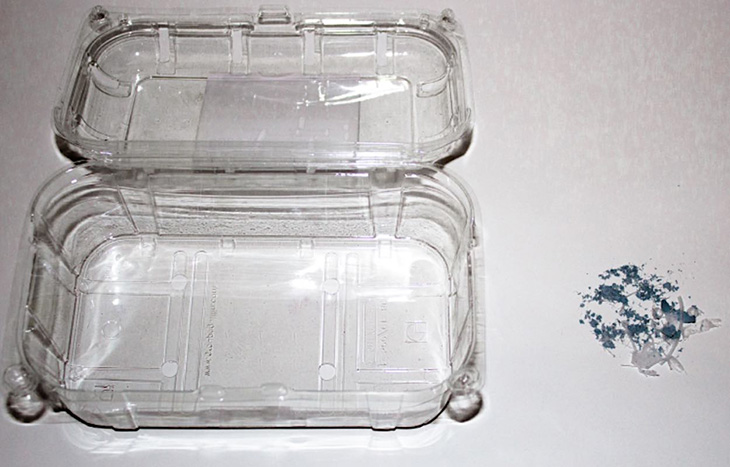

A German biotechnology company has made remarkable progress in the fight against plastic waste by transforming a naturally occurring enzyme, originally discovered in a cemetery, into a near-commercial solution capable of recycling plastic without sacrificing material quality. What began as a promising laboratory discovery has now evolved into a scalable industrial technology with the potential to reshape how the world recycles one of its most widely used plastics.
Back in 2022, GNN reported on a scientific paper published by a team of researchers based in Leipzig, Germany. These scientists had identified an enzyme capable of breaking down polyethylene terephthalate (PET), a commonly used plastic found in bottles, food packaging, and textiles. In early tests, the enzyme demonstrated an impressive ability to degrade 90% of PET plastic in a relatively short period.
Fast forward to 2025, and those same researchers have further refined and perfected the enzyme, now officially named PHL7. They’ve also founded a new company, ESTER Biotech, to bring this cutting-edge technology to the commercial market. The company’s mission is to harness the power of this enzyme to make plastic recycling more efficient, sustainable, and scalable — qualities often missing in traditional recycling methods.
As part of their rollout strategy, ESTER Biotech plans to complete a pilot project reactor by next year. Roughly the size of a bathtub, this reactor will serve as a testing ground to demonstrate the enzyme’s efficiency on a larger scale. If this initiative succeeds, the company’s next goal is even more ambitious: by 2030, they aim to construct four industrial-scale reactors, each with a capacity of 350 cubic meters. Combined, these reactors would be able to process 45,000 metric tons of PET plastic annually.
The advantages of PHL7 over existing recycling techniques are significant. Traditional chemical and thermal recycling methods often degrade the quality of plastic, resulting in a weaker, less stable material that is unsuitable for certain applications. In contrast, PHL7 breaks the PET plastic down into its original monomers — the basic building blocks of plastic — without diminishing their quality. These monomers can then be reassembled into new, high-quality plastic products, creating a true closed-loop recycling system.
Another remarkable feature of PHL7 is its wide temperature stability, operating effectively from 32°F to 203°F (0°C to 95°C). Additionally, it requires only 0.02% to 0.06% enzyme per kilogram of plastic, which is far less than other recycling processes demand. The latest optimized version of the enzyme also speeds up the recycling process, reducing the time required to break down plastic by several hours.
Christian Sonnendecker, the lead author of the enzyme’s discovery paper and co-founder of ESTER Biotech at the University of Leipzig, emphasized the broader environmental and societal benefits of this innovation.
“Our technology makes it possible to bring material flows that are currently burned back to the beginning of the cycle at the molecular level,” he explained. “And with high energy efficiency and scalability.”
He added, “We are only at the beginning. But we are convinced that when science, entrepreneurial spirit and social responsibility come together, a cemetery enzyme can become a beacon of hope for a better future.”
In addition to revolutionizing PET recycling, ESTER Biotech’s enzyme shows promise in handling more complex plastic waste. It has demonstrated the ability to separate multilayer composites, which are typically considered unrecyclable by conventional methods. These materials, made from different types of plastics layered together, are common in food packaging and have historically ended up in landfills or incinerators.
As ESTER Biotech continues to build the infrastructure needed for its pilot project, the company is also collaborating with two mid-sized industry partners to establish a cost-efficient supply chain. The aim is to bring down the production cost of the enzyme to between 100 and 200 euros per kilogram, making it competitive with existing recycling technologies. While no recycling process currently undercuts the cost of producing new, virgin plastic, ESTER’s pricing strategy would position it in line with current market alternatives.
Fortunately for innovators like ESTER Biotech, regulatory forces in Europe are also working in their favor. The European Union (EU) has been aggressive in implementing strict plastic recycling targets. Under existing legislation, by 2040, 65% of plastic production within the EU will be required to originate from recycled sources. This creates a compelling financial and environmental incentive for industries to explore advanced recycling solutions like enzymatic processing.
ESTER Biotech believes that its ability to deliver high-quality recyclate — recycled plastic material that retains the strength and durability of virgin plastic — will further accelerate the adoption of enzyme-based recycling technologies. As demand for sustainable solutions grows, and with regulations tightening across Europe, the company is optimistic about the future of its enzyme and its potential to fundamentally reshape global plastic recycling practices.
What are your thoughts? Please comment below and share this news!
True Activist / Report a typo







